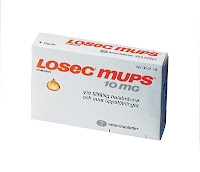Writing yesterday for the
Law Times ("EU court fires warning on antitrust behaviour"), Julius Melnitzer talks about the "clear and perhaps startling message" of the General Court law summer in
Case T-321/05 AstraZeneca v Commission (noted by The SPC Blog
here) that even acting within the law was no guarantee that one is safe from allegations of abuse of a dominant position. Regarding SPCs, Melnitzer had this to say:
"... European rules also allowed patent holders to apply for a supplementary protection certificate extending the validity of their patents for five years. The term is limited to the lesser of five years from patent expiration and 15 years from the first European marketing authorization.
In its application for Losec, AstraZeneca claimed March 1988 as the first marketing authorization date, but the commission proved that France had issued an authorization in 1987.
“This resulted in [AstraZeneca] gaining an additional period of protection for Losec in some countries and excluded the possibility of generic competition for a period of several months longer than was justified under the [supplementary] system,” ...
Following complaints from two generic manufacturers in 1999, the commission began investigating AstraZeneca’s patent management strategies between 1993 and 2000. In 2005, it decided that both the deregistration of the marketing authorizations and the misrepresentation of the first authorization date constituted abuse of dominance and imposed fines totalling 60 million euros. ...
... [T]he mere fact that AstraZeneca applied for the supplementary certificates didn’t make its conduct abusive. But misleading regulators regarding the date of the “first marketing authorization” took the company’s conduct outside the realm of legitimate competition on the merits.
“The submission to the public authorities of misleading information liable to lead them into error and therefore to make possible the grant of an exclusive right to which an undertaking is not entitled, or to which it is entitled for a shorter period, constitutes a practice falling outside the scope of competition on the merits which may be particularly restrictive of competition,” the court stated.
... [T]he misrepresentation nor the withdrawal of the marketing authorizations, then, was in keeping with “the special responsibility of dominant companies not to impair, by methods falling outside the scope of competition on the merits, genuine undistorted competition.”
While the case arises in the context of the pharmaceutical market, it could well affect conduct in other regulated industries, particularly those in which innovation and patents are significant competitive factors. ...
AstraZeneca has appealed the matter to the European Court of Justice".
No date for hearing the appeal appears yet to have been fixed but, given the extreme length of the General Court's judgment (920 paragraphs), the complexity of the issues and the value of the outcome to the various sectors of the pharma industry, both the parties concerned and the Court of Justice will need a good deal of time to think.


No comments:
Post a Comment